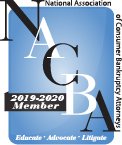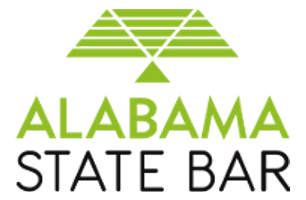I know it probably just felt like a kick in the stomach when you found out about that wage garnishment from your employer.
Of course, a wage garnishment never comes at a time when you have a lot of money sitting around. Most people are served with a notice of wage garnishment when they are already struggling to pay rent, buy food, or otherwise provide for their family.
Most wage garnishments are a result of a creditor or debt collector trying to collect on a judgment that was previously entered against you. So what this means is that you were previously sued, you had a chance to respond to that lawsuit, and a Court entered a judgment against you.
Most people initially learn from their employer that their wages are going to be garnished. However, at some point, the creditor or debt collector will have to serve you personally with a notice of wage garnishment. Just serving your employer is not enough. Nonetheless, your employer will be required to comply with the wage garnishment even if you have not been personally served.
Not all wage garnishments are a result of a judgment. Some government agencies such as the IRS or some other regulatory agencies can garnish your wages without a judgment. For purposes of this article, I am going to focus on wage garnishments issued as a result of a judgment entered on a credit card, medical bill, or other personal loans.
In order to stop a wage garnishment, you normally must take some action. Alternatively, the wage garnishment will continue until the debt associated with the wage garnishment is paid in full.
I am going to tell you about three separate ways to stop wage garnishment in Alabama.
Two options do not involve Bankruptcy and one option does involve Bankruptcy.
Non-Bankruptcy Option #1 – File a Claim of Exemption
If you bring home wages that are less than $1,000.00 per pay period, you may be eligible to file a claim of exemptions with the Court Clerk to stop the garnishment.
The creditor will have 10 days to file a contest to your claim of exemptions. If a contest is filed by the creditor, generally the Court will set all matters down for a hearing. Going to court by yourself is normally never a good idea.
Until a court enters an order quashing your wage garnishment or temporarily staying the garnishment during the contest period, your employer is required to continue to comply with the wage garnishment.
Non-Bankruptcy Option #2 – Settlement of the Debt
You or your attorney may be able to work out a payment arrangement with the creditor, debt collector, or their attorney (if they have one).
If you have access to cash now, you may be able to settle the debt for less than the full amount owed. In limited circumstances, you may be able to work out a payment arrangement directly with the creditor or their attorney to release the garnishment. This becomes more difficult when the creditor sees you have a good job and are not likely going to quit your job upon receipt of a garnishment.
You should confirm all settlement arrangements in writing.
Option #3: File for Bankruptcy
Filing either Chapter 7 or Chapter 13 Bankruptcy will invoke the automatic stay and stop your wage garnishment. Of course, there are very limited exceptions when the automatic stay does not immediately go into effect when a bankruptcy petition is filed.
Many times, the creditor or debt collector will file a garnishment release once they are notified of a bankruptcy filing. However, the garnishment release can be delayed for various reasons. So, we do not want to wait on this release and our office normally files a motion to quash the wage garnishment the same day the bankruptcy petition is filed. This way we are not waiting on a garnishment release from the creditor, and we normally quickly receive a court order quashing the garnishment that can be forward to the client’s employer.
In Conclusion
If you are having debt-related problems, reach out and our office would like to help you explore your options. Don’t wait until you are completely overwhelmed and are at your wits’ end.





